Auto Italia – Hot Moment
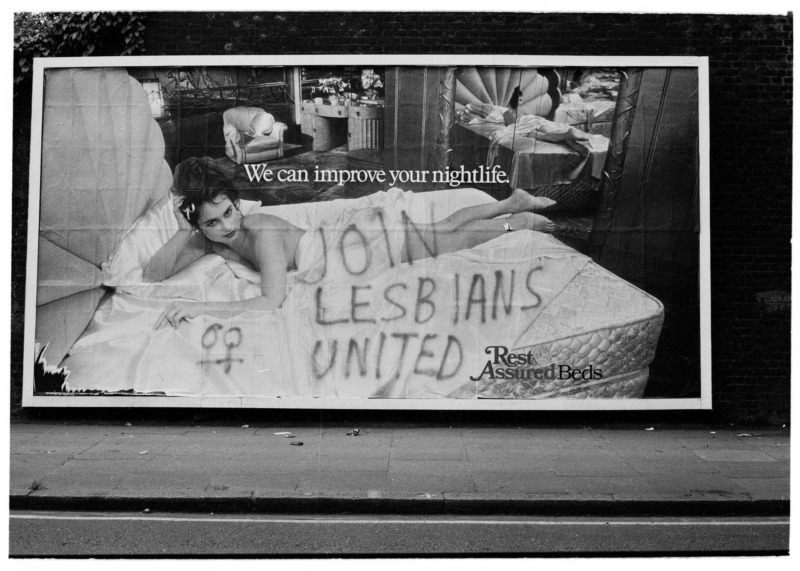
Jill Posener, Dalston, London, 1981. Billboard poster. 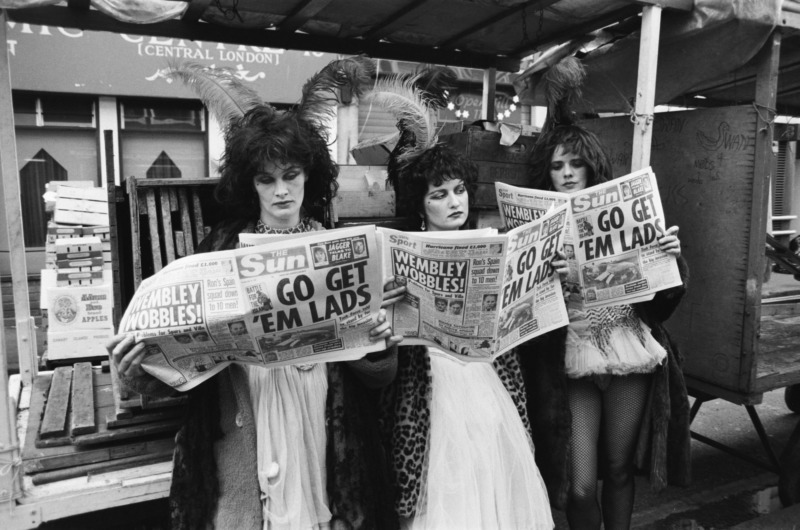
Soho: Dirt (Blood Group), 1984/2020, B&W digital silver gelatin print. 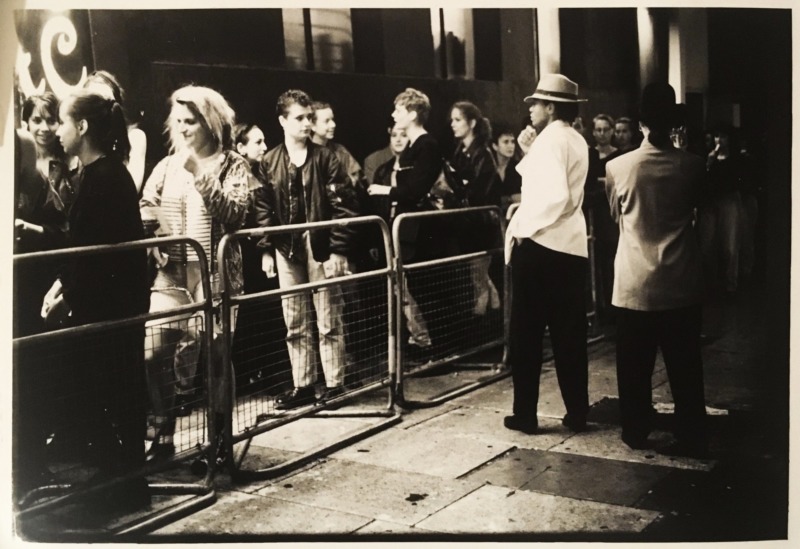
Ingrid Pollard, Performance outside The Fridge, Brixton, c.1990, B&W R-type prints. 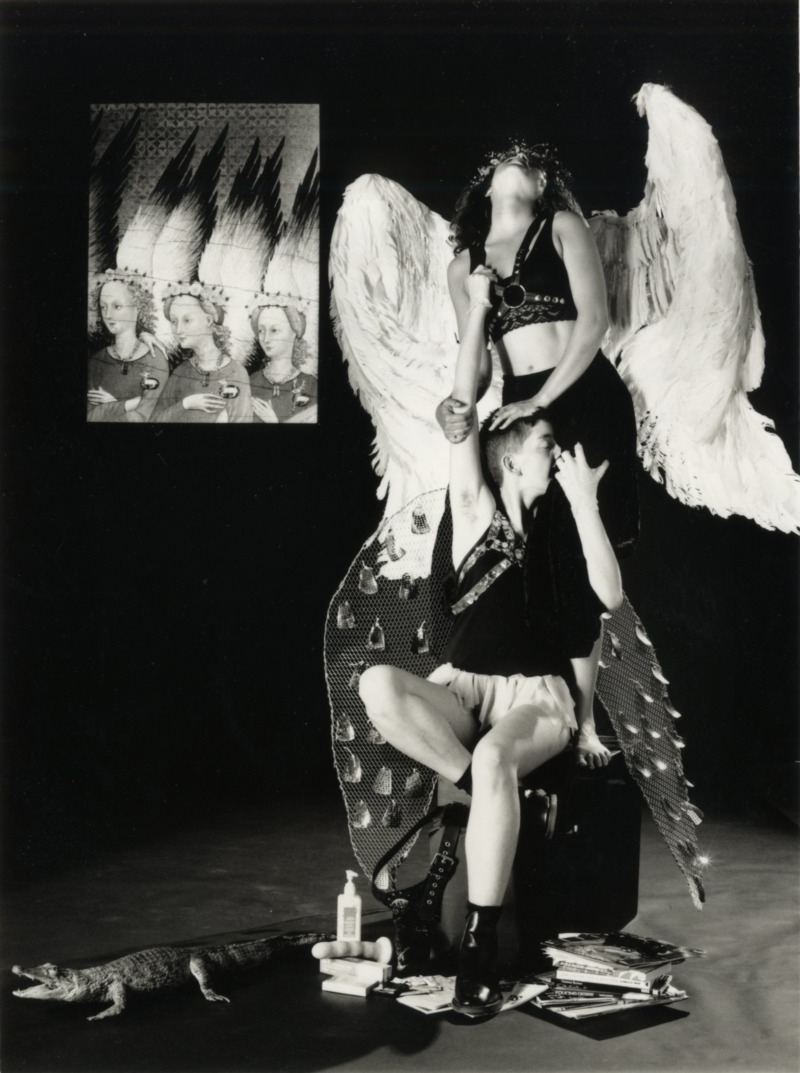
Tessa Boffin, Angelic Rebels: Lesbians and Safer Sex, 1989/2020, B&W digital silver prints from various sources. 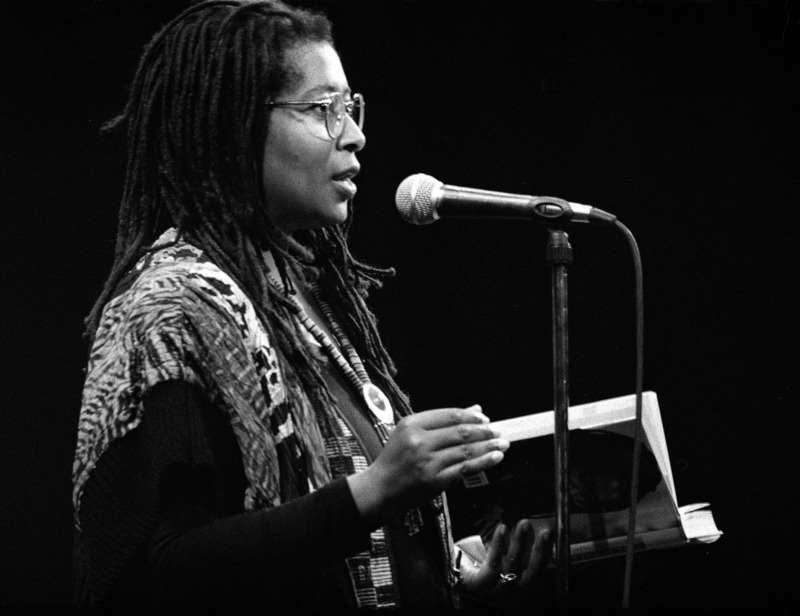
Ingrid Pollard, Alice Walker reading, London, 14 February, 1989/2020, digital print.
Out of the clubs and into the streets, dykes have created, fought for and celebrated spaces of representation beyond the privacy of the bedroom. Hot Moment examines photographic representations that emerge from the threshold of intimacy and public life in the 1980s and 90s. The exhibition presents the work of Tessa Boffin, Ingrid Pollard, and Jill Posener – three photographers for whom lesbian identity was never a coherent category to be straightforwardly translated to image by the camera. Instead, it signals a style, politics, and an attitude of production.
Boffin, Pollard, and Posener inhabited overlapping contexts in London during the 1980s. The Thatcherite policy was transforming the city in which they all lived and worked, and each artist was spurred by ethics of collectivised public politics and a desire to document the activities of a community for its members. Photography was a widely accessible medium that expressed a sustained interest in the politics of public engagement, and Hot Moment evidences the diversity of photography’s informal distribution networks and audiences at that time – from billboards and book covers to club nights and street performance. Photography was a testing ground. Comprised as much from a network of community-led workshops, galleries and darkrooms as it was the technological means of reproduction, the idea of public was often intentionally limited either by context or circulation. This was sometimes an answer to the necessities of personal safety, creating spaces in which people and practices could thrive.
The images in Hot Moment emerge from the context of contemporaneous political struggles around reproductive rights, the onset of HIV/AIDS in the UK, the legislation indicated by Section 28, police stop-and-search laws, and up-risings in urban areas. As these issues were reported in the newspapers, many lesbian-identified photographers reacted against homophobic and sexist representations peddled by the mainstream press. And while newspapers offered possibilities for jobbing photojournalists in the form of press-gang photography (as was the case for Posener), inevitably limited and often negative depictions of homosexuality and daily doses of misogyny also became the oppositional subject matter for artists.
Posener’s widely circulated photographs of vandalised billboards represent witty feminist ripostes to the heterosexism of commercial advertising. Boffin’s Kings Trial, meanwhile, highlighted the role of the tabloid press in the pathologisation and criminalisation of expressions of FTM crossdressing and trans-masculinity. This project remained unrealised at the time of Boffin’s death and is exhibited here alongside contextual references in The Sun and Capital Gay. Elsewhere, cultural workers sought to create and frame their own contexts of international exchange, bypassing mainstream media completely: Late Start Film and Video Collective (of which Pollard was a member) documented their own conversations among friends and peers, including Audre Lorde and Jackie Kay.
In queer cultures, the stage offers a space of escape – a place of communal visibility, shared production, and performed desire. Pollard’s photographs of Club Sauda, a cabaret organised by and for Black women, were first exhibited in the context of the club itself. Posener’s collaborations with women’s theatre company Blood Group confirmed the photographers’ commitment to anti-doctrine forms of feminist politics including representations of sex and sex work (Posener went on to become the first named photo editor of San Francisco-based lesbian erotica magazine On Our Backs). The constructed image allowed Boffin to stage a system of signs in her highly orchestrated photo shoots, which include numerous literary and art historical references and nod to the staging of sex acts at queer clubs that Boffin and friends frequented and sometimes performed at.
Hot Moment is a group portrait of three photographers, one which takes its title from Pollard’s own recollections on the period. Pollard writes,
“It was now commonplace for me to be with a camera and I realised that what developed from this was a personal aesthetic of the ‘snap-shot’, the fleeting exposure of a split second, capturing the hot moment of performance. During the eighties, I was working with and photographing actors, dancers, writers and theatre companies. It was a work of fantasy and make-believe where the detail of a gesture or the caress of light on a shoulder were part of the alchemy that captured my attention.”
In this space of fantasy, dyke photography offered internal visibility crucial in shoring up temporary communities otherwise subject to periodic dispersion and ongoing precarity. The medium was a critical means to document cultural activity and community organising taking place in tandem with artists’ practices, namely: live theatre, club spaces, book fairs, and, of course, spaces of political protest. Hot Moment depicts the interlinked activities of these lesbian-identified communities of activists, writers, and performers. The exhibition is animated by the desires for and a politics of representation.
Hot Moment is open at Auto Italia, London, from the 12th of January until the 14th of March 2020.
